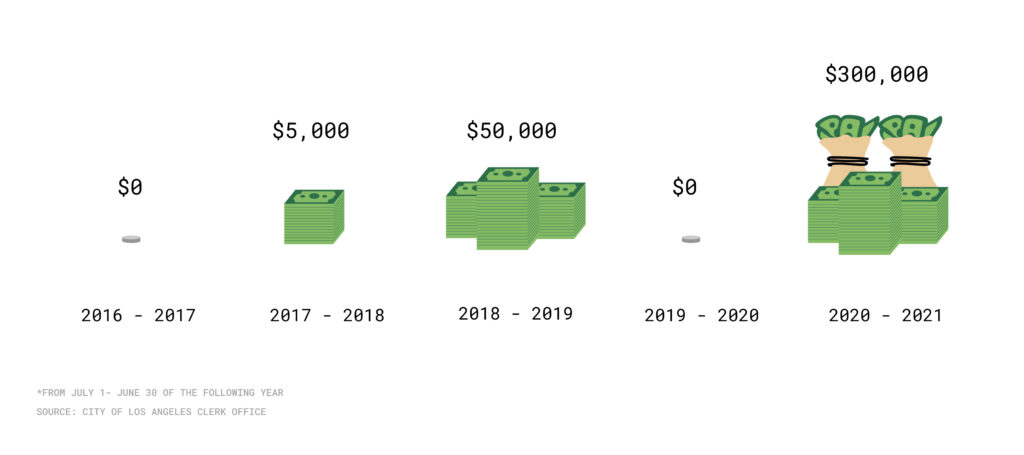City paid out $300,000 last year for information on hit and runs

On the day after Christmas in 2016, a burgundy sedan made a U-turn at the intersection of 48th Street and 9th Avenue in Hyde Park. The vehicle struck Mikail Hasan, who was riding a motorized bicycle. The 35-year old father of nine wound up in the hospital with a crushed aorta, brain bleeding, facial fractures and other injuries.
Instead of stopping to help Hasan, the driver sped off, which turned the incident into a felony hit and run.
Twelve days later, someone called the Los Angeles Police Department and provided the driver’s name and the location of his vehicle, which had been hidden under a tarp behind the man’s home. The suspect was arrested and the caller ultimately received $25,000 through the city’s Hit and Run Reward Program.
If you have never heard of the program, you’re not alone. The city launched it in 2015 to incentivize people to provide information to police about these kinds of traffic collisions. Rewards range from $1,000 for information about property damage to $50,000 for a case that results in a fatal injury
Over the life of the program just 14 rewards have been paid out. Last year was by far the most lucrative for informants, with the city dispensing $300,000 to 11 people.
Hit and Run Reward Program payouts in Los Angeles, 2016-2021

‘It’s hit and miss’
Capt. Andrew Neiman, the commanding officer of the LAPD Valley Traffic Division, said 2021’s large payouts could have been due to the length of time it takes for cases to be solved. The city will not pay a claimant until a suspect is apprehended and convicted, which can take years.
Los Angeles has seen a rise in people dying or being seriously injured in car crashes. In 2021, there were 359 felony hit and runs in the city that resulted in serious injury or death, up 25% from the 286 in 2020, according to LAPD Traffic Division Compstat data.
[Get COVID-19, crime and other stats about where you live with the Crosstown Neighborhood Newsletter]
Altogether, there were 3,536 felony hit and run cases in Los Angeles last year. That was a decrease of 17% from the 4,273 in 2020.
While any hit and run could be eligible for a reward, in the four years Neiman has worked at the Valley Division, the department has had half a dozen cases be approved for a payout. The City Council is involved in the process, as the representative of the district where the incident occurred must put forward a motion for the reward, and it must be approved by the full council.
Rewards are intended to spur people to speak up. Neiman said just 8% of the felony hit and runs in the city in the first 11 months of 2021 were solved.
“It’s hit and miss. It certainly has stimulated a lot more information that comes to the department,” Neiman said. “Not all of that information pans out and is fruitful in terms of solving the case.”
LAPD Detective Ryan Moreno said there are people who call with information about hit and runs and don’t even want the reward money.
“They just want to call because it’s the right thing to do,” he said.
Neiman said while the program can be helpful, he wishes it didn’t have to exist.
“So many good people put themselves in harm’s way because they don’t understand that they need to stay at the scene of a collision and exchange information, even if it’s tragic,” he said.
How we did it: We examined traffic data from the Los Angeles Police Department and its Traffic Division. Learn more about our data here.
LAPD data only reflects crimes or incidents that are reported to the department, not how many crimes actually occurred. In making our calculations, we rely on the data the LAPD makes publicly available. LAPD may update past crime reports with new information, or recategorize past reports. Those revised reports do not always automatically become part of the public database.
Have questions? Email us at askus@xtown.la.






